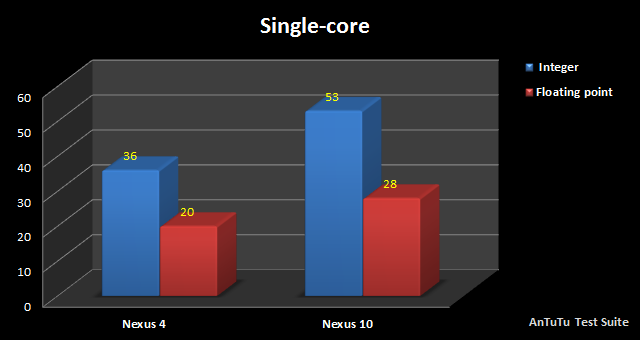Not a bit fan of this benchmark but it does show impressive numbers, HTC One does fairly well.
Wish Samsung would hurry up with the Exynos Octa versions.

Samsung Galaxy S4 Twice As Fast As iPhone 5, Even Galaxy S3 Proves Faster Than Apple
Wish Samsung would hurry up with the Exynos Octa versions.


The benchmark analysis in question only tested the Samsung Galaxy S4 with the Qualcomm Snapdragon 600 SoC, and according to Poole, Primate Labs can’t say how the Galaxy S4 with the new Exynos 5 Octa SoC will perform.
However, considering the fact that the Galaxy S3 with Exynos 4412 at 1.4 GHz (4 cores) is proved faster than the other variant with the Qualcomm Snapdragon MSM8960 at 1.5 GHz (2 cores), Poole believes that the Geekbench score will be similar in terms of the Galaxy S4, sporting 8-core Exynos processor, as well.
Samsung Galaxy S4 Twice As Fast As iPhone 5, Even Galaxy S3 Proves Faster Than Apple













